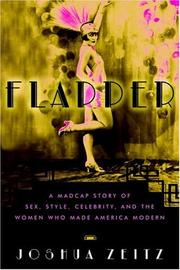Women had been imprisoned in a gilded cage, from the restricted clothing to perpetual pregnancy. The Flappers pushed the envelope: swearing like a sailor, engaging in "petting", dancing in provocative ways, and jumping on the latest wild fashion style. One 14 year old girl committed suicide when her mother prevented her from rolling her stockings and bobbing her hair.
"I sometimes wonder whether the flapper made me or I made her." F. Scott Fitzgerald
 This was the generation that invented 'dating' and 'treating' where men asked a girl out and paid her way, leaving the girl to decide how to 'repay' him. Premarital sex, typically with a finance, jumped from 14% of women born before 1900 to 39% of women who came of age in the first decades of the 20th c.
This was the generation that invented 'dating' and 'treating' where men asked a girl out and paid her way, leaving the girl to decide how to 'repay' him. Premarital sex, typically with a finance, jumped from 14% of women born before 1900 to 39% of women who came of age in the first decades of the 20th c.By 1929 over a quarter of all women had jobs, and half of single women worked. Young people lived at home longer. They came from smaller families with siblings born closer together. Social circles became generational. Radio and the movies created an information revolution, while the telephone allowed 'instant messaging'. Leisure pursuits and having fun became more important that work.
Instead of trying to reach 150 pounds, women were dieting and losing weight to wear those skimpy dresses. The 'womanly' figure was out.
 |
| Arrow shirt ad |
Fundamentalism was born, a backlash against the breakdown of morality and the prevailing secular thought. The arch-conservative American Legion was formed. The Women's Voters and social feminists tried to keep alive the ideal of motherhood as the civilizing force in society.
Flapper by Joshua Zeitz is an interesting and lively social history. In the last year I had read Mademoiselle: Coco Chanel and the Pulse of History by Rhoda Garlick and lots of Fitzgerald books. I appreciated reading about lesser known characters of the time. Artists John Held and Gordon Conway gave "visual expression to the social revolution sweeping the United States", and Lois Long AKA Lipstick who wrote a social column for The New Yorker about the Flapper social set. Actresses Clara Bow, Colleen Moore and Louise Brooks reigned the silver screen but I had known little about them.

Flapper: A Modern Story of Sex, Style, Celebrity, and the Women Who Made America Modern
by Joshua Zeitz
Broadway Books
2006
.jpg)